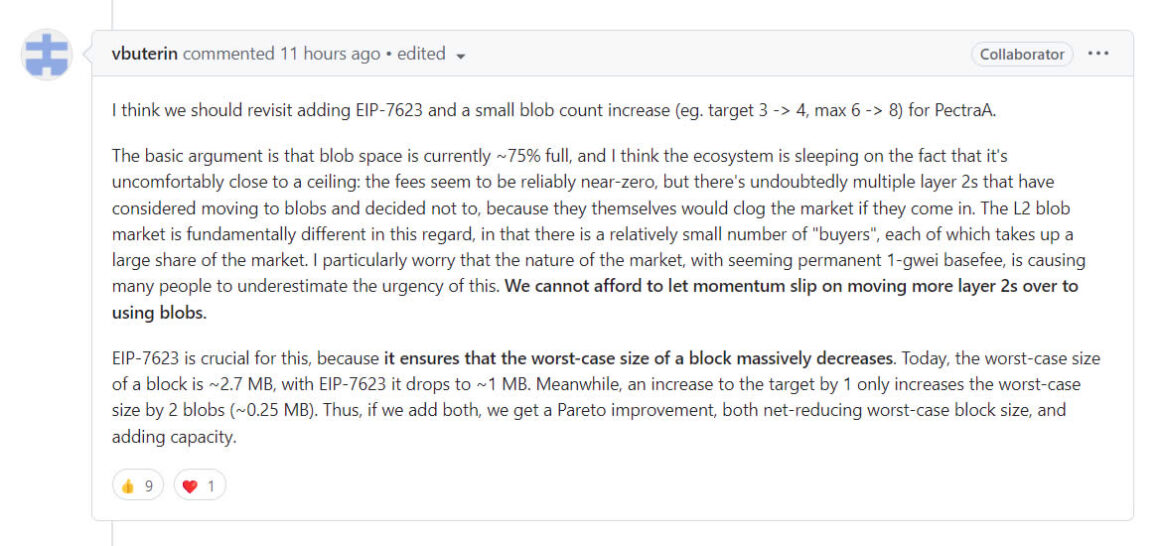Ethereum co-founder Vitalik Buterin wants to increase its “blob count” — introduced during its Dencun upgrade — to scale the network further and enable layer-2 protocols to boost capacity.
In a discussion thread following its latest developer call, Buterin revealed that blob space is currently around 75% full, and changes need to be implemented via Ethereum Improvement Proposal (EIP)-7623 to increase the blob count:
“I think the ecosystem is sleeping on the fact that it’s uncomfortably close to a ceiling.”
Blob space refers to a specialized data storage area introduced by EIP-4844 — also known as proto-danksharding — to improve the scalability of the network.
This space is designed to temporarily store large amounts of data, primarily to benefit layer-2 rollups.
The blob count is the number of blobs that can be included in each Ethereum block.
The current target is three blobs per block with a maximum of six, and Buterin has now advocated increasing this to a target of four with a maximum of eight blobs per block to allow more data to be stored per block, which could potentially improve the capacity for L2 networks to post their data on Ethereum.

EIP-7623 proposes increasing the call data cost for transactions primarily using Ethereum for data availability (DA). This would reduce the maximum block size from 2.7 megabytes to approximately 1MB and make room for potentially increasing the block gas limit or the number of blobs.
Buterin expressed concern that some L2s are hesitant to move to blobs due to potential market congestion. He warned, “We cannot afford to let momentum slip on moving more layer 2s over to using blobs,” adding:
“EIP-7623 is crucial for this because it ensures that the worst-case size of a block massively decreases.”
Buterin views layer-2 networks as essential components for Ethereum scaling but he also emphasized that they must be decentralized. Recently he stated that he only plans to acknowledge scaling solutions at “stage 1” of his decentralization scale.
In a Sept. 26 X post, Coinbase L2 Base creator Jesse Pollak said he strongly supports Buterin’s proposal to increase blob count. Pollak said it “reduces worst-case block size and adds needed capacity for fast-growing L2s,” and “the growth is exponential.”
The highly anticipated Prague upgrade will focus on changes to the network’s execution layer, with the Electra upgrade impacting the consensus layer, hence the name Pectra (Prague Electra). It includes a number of EIPs that will improve scalability, introduce account abstraction and increase validator staking limits.
Ethereum developers proposed splitting the Pectra upgrade into two segments, PectraA and PectraB, to accelerate its deployment.



